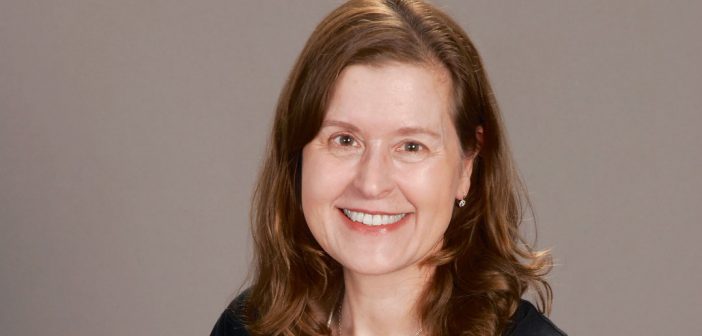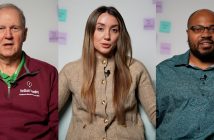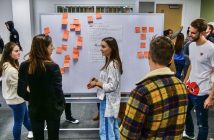At Fordham, about one-third of both undergraduate economics majors and economics faculty are women, while the graduate economics population is made up of about 50% women, according to Sophie Mitra, Ph.D., professor of economics at Fordham and co-director of the disabilities studies minor.
Despite the fact that the University is slightly above the national average in both of those areas, the economics department launched a “climate committee” in 2018 to examine these issues related to underrepresentation and develop resources to “enhance diversity and inclusion in economics at Fordham,” Mitra said.
One of their first initiatives is the “Inaugural Distinguished Lecture in Economics,” featuring Janet Currie, Ph.D., the Henry Putnam Professor of Economics and Public Affairs at Princeton University and co-director of Princeton’s center for health and wellbeing. The event will take place on Thursday, Dec. 5 from 6 p.m. to 8 p.m. at the McNally Amphitheater at the Gabelli School of Business. The talk will be followed by a question-and-answer session and a reception.
The event was sponsored by the economics department, the Office of the Chief Diversity Officer, the faculty of arts and sciences deans, the Economics Society, and the faculty working group on disability. Funding was provided through the economics department, Chief Diversity Officer, and the faculty of arts and sciences deans.
Mitra said they wanted to bring in Currie because her research “goes beyond this narrow and misleading understanding of what economics is about.”
“Currie is a scholar whose work spans labor, public, and health economics,” she said. “She has made fundamental contributions in many areas and is best known for her work on public policy issues affecting child health and well-being. Through this lecture, we would like students to get a taste of the breadth of her illuminating research.”
That’s also why the focus of the lecture, “Child Health and Human Capital,” does not fit with what is often perceived as an economics topic.”
“There is the commonly held notion out there that economics is about money, business, or material resources,” she said. “Economics is a social science that provides ways to understand human behaviors and can pay attention to ethics. It can help contribute to solving a variety of issues, such as improving child health by considering the sorts of economic arrangements and public policies that serve to improve child health.”
Mitra said that the goal is to make this the first in a series of lectures that will feature a “diverse set of scholars that undergraduate students may not hear about” and “scholars that use a variety of approaches and paradigms.”
In addition to offering events, Mitra said that the climate committee is also working to attract potential students who might not have thought about majoring in economics.
“One focus of this committee is to develop initiatives and resources that may help more diverse candidates study economics or at least consider studying economics at the undergraduate level,” she said. “We are considering new course offerings to that end as well as events.”
While the event is open to the entire Fordham community, the program is specifically geared towards undergraduate students who are just starting out in economics.
“Our main purpose is to expose students to a topic and a scholar that they might not typically study in the introductory courses in economics,” Mitra said.
To RSVP, please visit www.curiefordham.eventbrite.com. To learn more about the event, visit www.fordham.edu/info/20930/economics.



